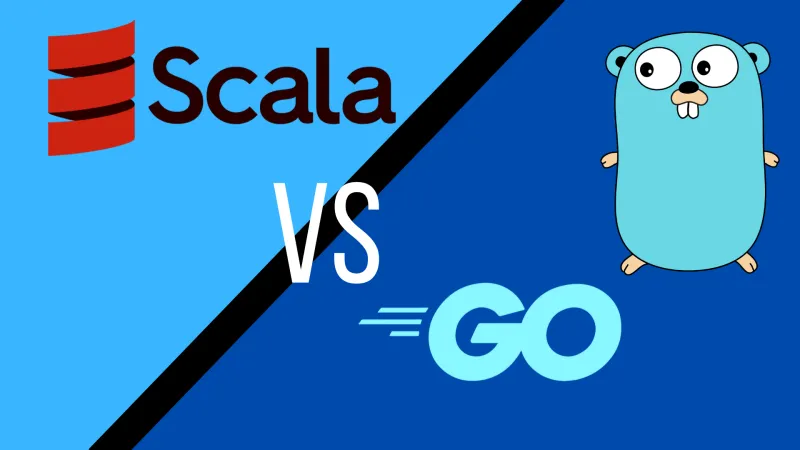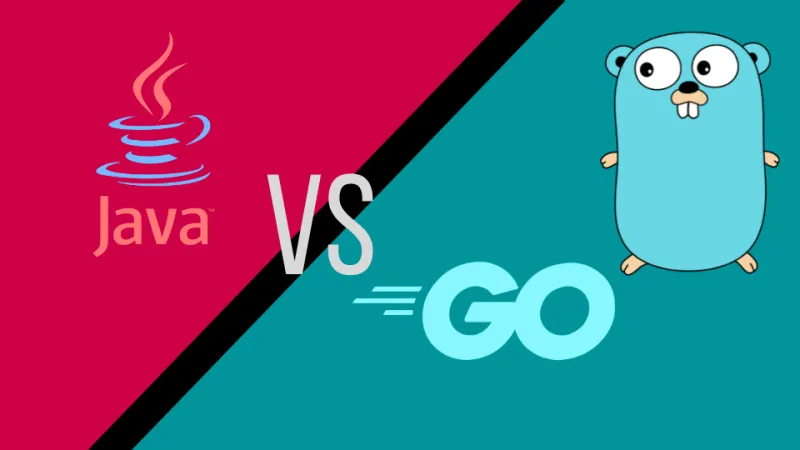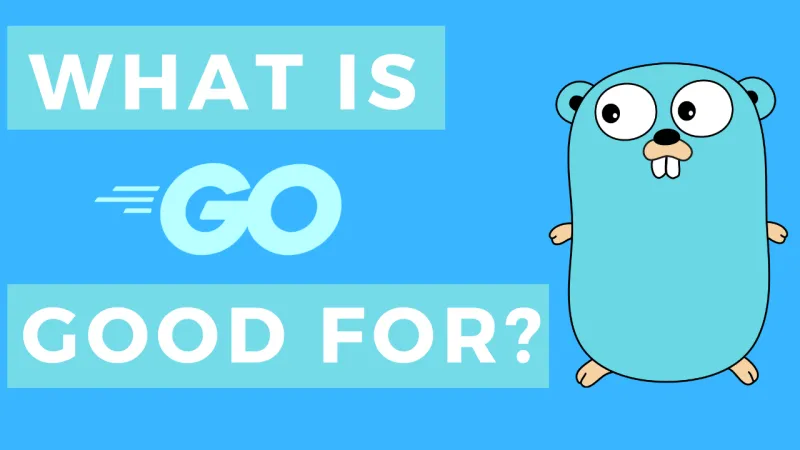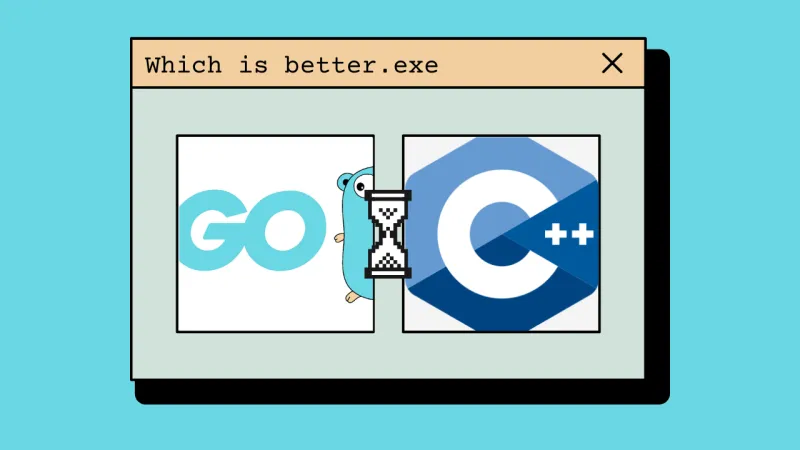Scala and Golang are newer languages, only coming onto the scene after the turn of the century, but in that time they’ve managed to become two of the highest-paid languages for developers, with the industry benefiting from their fresh creation.
But what makes these languages so special?
What are Go and Scala? 🔗
Developed at Google in 2009, Go is a statically typed, procedural programming language that took the run-time and syntax of C, coupled with improved readability, to create a powerful and safe server-side language.
Go is most famous for its easy learning curve, optimized memory management, and ability to handle large-scale networks.
Oppositely, Scala was developed by Martin Odersky at the École Polytechnique Fédérale de Lausanne in Switzerland and was first made public in 2004, getting its namesake from the words scalable language.
Scala is a statically typed, general-purpose, object-oriented language that aims to address the criticisms of Java, while still utilizing the Java platform. Scala is well known for its use in Big Data and machine learning.
| Go | Scala | |
|---|---|---|
| Type | Statically typed | Statically typed |
| Language | Procedural | OOP |
| Main use | Large-scale networks | Big data and ML |
Choosing between these languages is no easy thing, so I’m here to do the hard work for you. Keep reading to see how the languages compare in skill level, performance, salary, and application to figure out which one is best for you!
Scala vs Golang: Which Is Better for Beginners? 🔗
When it comes to choosing between Go or Scala as a beginner language, the vote is unanimous for Golang due to its emphasis on simplicity and power.
Go is known for its incredibly clean code, which makes it easy to learn and quick to program – so you can start coding right away. As a multiparadigm language, Go supports procedural and functional programming, which are the most readable and recommended styles for beginners, further boosting Go’s beginner-friendly credentials.
Golang is also known for its top-notch memory management, with a cutting-edge garbage collector, streamlined goroutines, and static typing, it has all the makings of a safe and error-handling-friendly environment.
Scala’s learning curve on the other hand is much less forgiving – unless you happen to be a junior developer that’s mastered Java.
Unlike Golang, Scala is an object-oriented language, which is notoriously difficult for beginners to learn, because it revolves around manipulating data rather than writing down instructions. It does have the benefit of being a multiparadigm language that supports functional programming, but moving between OOP and functional programming can be complex.
Conclusion: You can learn Scala on its own, but to get the full benefit of the language, you need to know Java. Therefore as a beginner, Golang is your best bet.
Scala vs Go: Which Is Better for Experienced Programmers? 🔗
Both Scala and Golang offer excellent advantages for experienced programmers depending on your background and field of work.
Scala is a clever choice, especially if you already know Java. Not only will it be familiar and easy to learn, being OOP and using the JVM, but it runs like Java just with less code. Then, there’s the added benefit of functional programming and the fact you can express anything in Scala.
Scala is also compatible with some exceptional tools like the Akka ecosystem, an open-source toolkit and run-time that simplifies concurrent and distributed applications in JVM, as well as frameworks that support data analytics, microservices, and monoliths seamlessly.
Go comes into play if you’re looking for a safe but powerful back-end language, especially for web development or cloud servers. Go’s smooth concurrency and low RAM and CPU usage make it not only a fast option but a cost-effective option.
It also has a wider range of uses and is ideal for microservices, CLIs, serverless applications, and stream processing.
Conclusion: both have advantages for experienced programmers, it just depends on what you’re doing. If you know Java and like working with data, then Scala is a better option, but if you want to learn a language fast with a broader application, then Golang is the winner.
Scala vs Go: Which Has Higher Pay? 🔗
While working in an exciting and evolving industry like technology is attractive enough, the pay isn’t too bad either.
According to Payscale, Golang developers earn a median salary of $117,394, and Scala developers earn a median salary of $177,698. It’s hard to beat Scala, as it’s the highest-paid developer job in the US, but Go comes in at second place with solid pay, especially for a beginner. Keep in mind however, that Scala is a less popular language, so while it may pay well, there probably won’t be as many job openings.
Conclusion: The data has Scala as the highest-paid language, with Go second. However, both of these are very highly paid.
Go vs Scala Performance 🔗
When comparing Go and Scala’s performance, things can get a bit misty. Opinions vary widely on which language performs better, but like most things on this list, it comes down to what you’re using the language for.
Go makes various concessions in the name of speed and simplicity. For example, Go’s garbage collector slows it down a bit but makes memory management simple. Go also supports multithreading out of the box. Plus, it directly compiles to binary, instead of JVM bytecode for better cross-platform support.
In some cases using the JVM actually increases Scala’s performance however, like with the Play Framework, which adjusts bytecode at run-time and adds optimizations. But it can equally hurt Scala by causing slow deployments and compilation when compiling complicated dependency trees.
Go was also built to handle Google’s massive network servers with low RAM and CPU usage, which then leads to faster microservices, stateless applications, and containerized applications. But, Scala just as quickly takes the lead for complex applications, monoliths, and stateful processing with the use of added frameworks.
The same pattern is seen with stream processing. When Scala developers use Akka, the process becomes more complex, but they get a massive ecosystem and more functionality, and while Go only has its native tools, it can scale up in the future.
In a nutshell, nothing about comparing Go’s and Scala’s performance is straightforward, however, Go’s advantage is it supports advanced performance without the need for any additional frameworks. This creates a more streamlined experience for the developer, and its low CPU usage also makes it cheaper to run.
Scala vs Go: Which Is Best for Web Development? 🔗
I hinted at this answer earlier, but Golang is a web developer’s best friend.
Built with server-side work in mind, Go allows you to build applications and entire web servers fast and efficiently with its standard library, so you can build away without the hassle of 3rd party tools.
Golang’s is also highly concurrent and scalable and handles HTTP requests like a breeze with built-in HTTP/2 support. Plus, Golang is a compiled language so it can run in any environment, from the cloud to any operating system, and faster than competitors.
While Scala can be used for web development, its best face is seen in other areas.
Scala does not offer native tools that allow you to build web servers and requires the help of frameworks like Play Framework and Lift to build applications. You’ll also need to use Spark or Hadoop for any cloud application you wish to do.
The real key takeaway here is that Golang’s native support for web development, which inherently means a smoother and faster process than Scala.
Scala vs Golang: Which Is Best for Big Data? 🔗
Depending on how close you’re paying attention, you already know which language is best for Big Data.
This is where Scala has made its name utilizing leading frameworks like Apache Spark for fast general-purpose large-scale data processing. It has additional libraries like Spark Streaming, Spark SQL, and Spark GraphX, that aid with Big Data analytics and visualizations. It also brings along all the support and libraries from the Java platform.
Scala itself has a lot of properties that naturally support Big Data as well.
Its integration of OOP and functional programming give it a unique blend of using values as objects and functions as variables. Scala also allows you to describe algorithms at a higher level of abstraction, even AI algorithms, so you can use them in serial, in parallel across cores, and in parallel across a cluster of machines without changing any code.
On the other hand, Go is still very new to Big Data. While it possesses the power to handle big data and offers native machine learning tools, it doesn’t have the support, community, or experience to master Big Data as Scala does. However, there’s a potential for it in the field.
Conclusion: Scala is best for Big Data.
Scala vs Go: The Final Verdict 🔗
Like all great questions, the answer is never simple. When deciding which language is best, it depends on your preferred field of work and background.
If you want a job in Big Data or more traditional industries like finance, have a background in Java, or are looking to optimize your Java operations, and are wanting to monetize your Akka and Spark knowledge, then look no further than Scala.
However, if you’re more interested in start-up and DevOps culture, working in the cloud on cool projects, and are open to seeing how the language will continue to evolve in the programming space, then Golang is your ultimate match.
In the end, both languages offer high-paying opportunities, job stability, and an exciting future in the tech industry.
If you’re interested in learning Go, we have designed our Learn Go courses to take you from any skill level and give you the skills you need to land a Go programming job. The two courses cover the basics, and move on to more complex topics like currying and concurrency, and we even have a Go interview prep course to help you ace the interview.
Start Learning Go with boot.dev here




